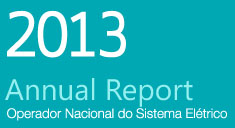2016 Olympic Games
The Olympics is considered by many as the greatest show on earth, and, in 2016, will be held in Rio de Janeiro, Brazil. The event involves various sectors of the economy - and representatives of public and private administration - and, due to its international dimension, will demand a perfect infrastructure planning and coordination of logistics, in order to ensure its successful completion.
Based on the decision of the Power Sector Monitoring Committee (CMSE), MME coordinates the working group WG-2016 Olympic Games, created in June 2012 by Decree 379/2012, in which was set up task force TF Olympics 2016, whose purpose is the electrical system, coordinated by ONS. This task force aims to develop an Action Plan with the measures necessary to ensure the supply of electricity to the city of Rio de Janeiro during 2016 Olympics event, according to the requirements of the International Olympic Committee to the host city. These requirements consider a set of investments that will revert to society after the event, referred to as legacy, and one that is temporary, only necessary to perform the show, called overlay.
Besides the evaluation of the service to the region of hotels, airports, tourist spots and facilities for the infrastructure of the event, special attention should be given to the four "Olympic clusters" of the city of Rio de Janeiro. Cluster is the set of competition venues (arenas) where the games will be held, i.e.:
- Cluster Barra: Olympic Park + Rio Centro + Athletes Village + Golf Course + Media Village (Legacy = Olympic Neighboorhood Carioca).
- Cluster Copacabana: Lagoa Rodrigo de Freitas + Copacabana Stadium + Fort Copacabana + Marina da Glória + Flamengo Park.
- Cluster Deodoro: National Equestrian Center + National Shooting Center + Deodoro Arena + Deodoro Modern Pentathlon Park + Olympic Mountain Bike Park + Olympic Whitewater Stadium + Olympic BMX Center + Olympic Hockey Center.
- Cluster Maracanã: João Havelange Stadium + Maracanã Stadium + Maracanãzinho + Sambódromo.
It is noteworthy that, by having a longer timeline than the rest, the modality soccer begins before the official opening of the Olympics and will have their games played in the city of Rio de Janeiro, as well as in Salvador, Belo Horizonte, São Paulo and Brasilia.
ONS also participates in weekly meetings at the Olympic Public Authority - APO, participating in the Energy Working Group, where all operational issues to serve to the above clusters are analyzed. APO is an entity formed by the Federal, State and City Governments through the City Hall of Rio de Janeiro.
